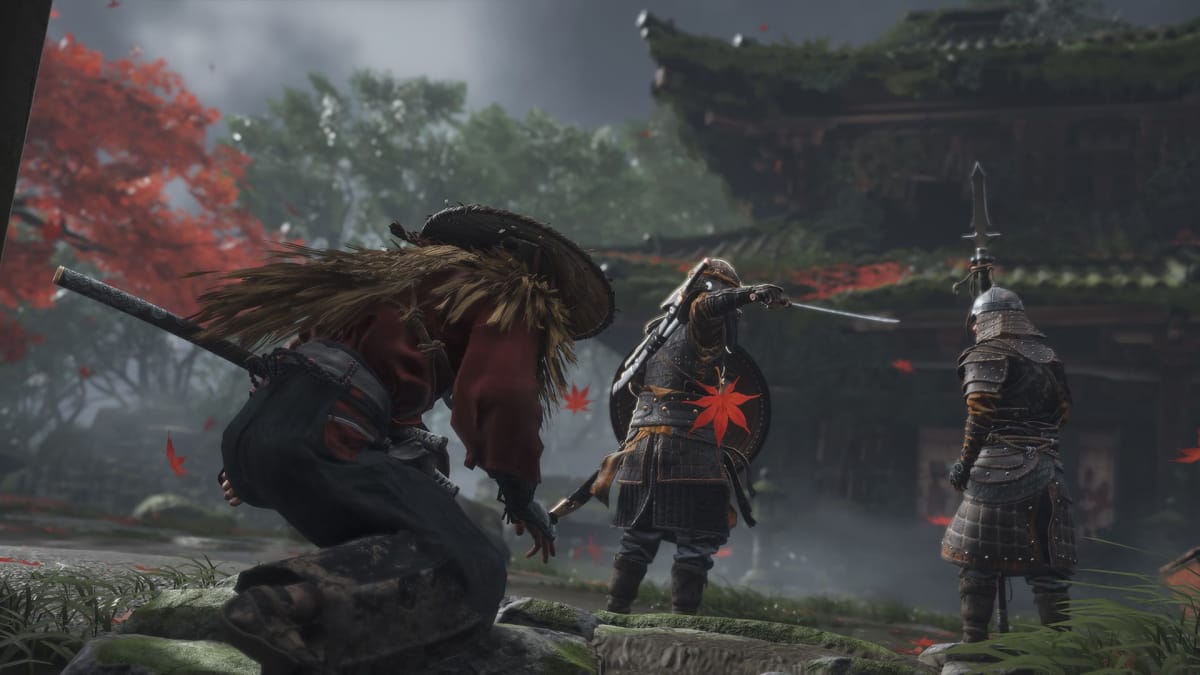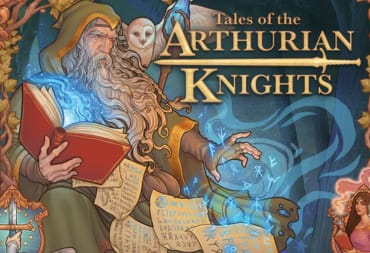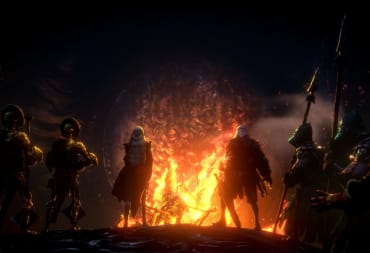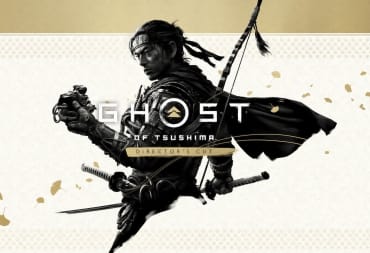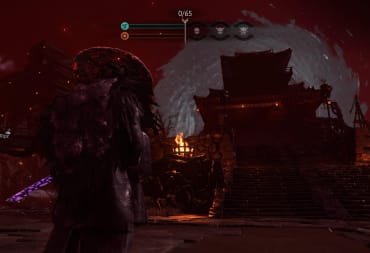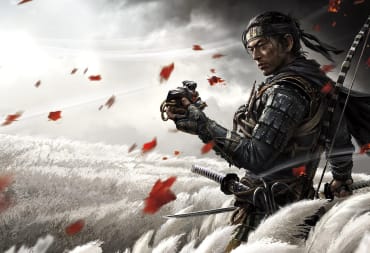The games industry owes a lot to what the film industry has done in the past century. Ghost of Tsushima especially owes a lot to Akira Kurosawa’s legendary work in samurai cinema, one of the many inspirations for the game’s narrative, storytelling techniques, and cinematic framing. However, a big part of nailing that storytelling lies in its musical identity, which beautifully captures the protagonist’s internal struggle throughout the story.
The Best Game Music of 2020 is a weekly feature that highlights some of the best soundtracks of the year.
Ghost of Tsushima looks, feels, and sounds like a samurai movie disguised as a video game. Its musical identity sounds a lot like a samurai movie too. It’s got intrigue and suspense, with instrumentation that takes you back to feudal Japan. You might not be able to call out a specific track, but when you hear one, you’ll likely immediately attach it to your memories playing as Jin Sakai.
The soundtrack, created by British composer Ilan Eshkeri and Japanese composer Shigeru Umebayashi, weaves a tapestry that solidifies the samurai cinema vibe. It perfectly complements the game, whether you’re playing it in Kurosawa Mode or not. Above all, though, the Ghost of Tsushima soundtrack accomplishes something that some of the best soundtracks do: tell an unseen story through music.
Spoiler Warning: This piece spoils the ending of Ghost of Tsushima.
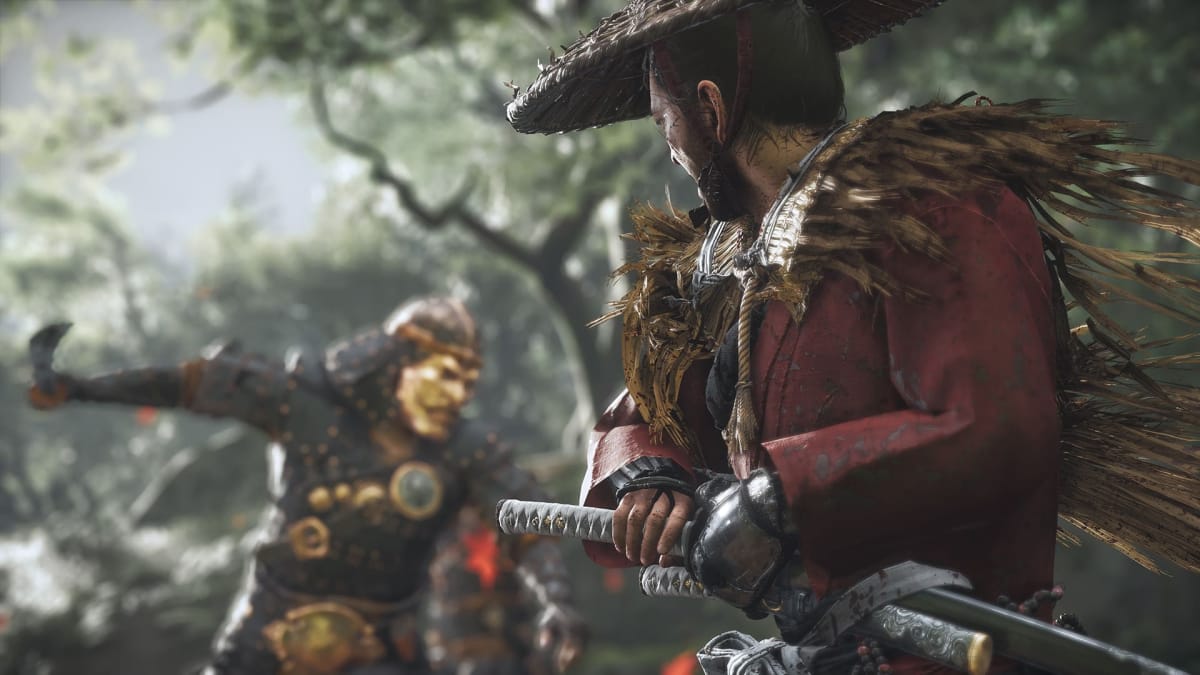
Jin Sakai’s Dynamic Struggle
Before we get into the music, let’s establish the story here. Sucker Punch’s Ghost of Tsushima tells the epic, alternate-history tale of the Mongolian invasion of 1274. There’s a lot to like amid its twists and turns, with a lot of relatable themes like loyalty, betrayal, and the struggle to protect one’s home at play here. However, the best story that unfolds before our eyes is the story we don’t see: the struggle within Jin Sakai’s mind.
The way of the ghost can solve problems the way of the samurai can’t.
Jin is, obviously, a samurai. He fights his enemies head on—with honor. But when push comes to shove, he has to increasingly rely on indirect ways of fighting. Behind-the-back assassinations, smoke bombs, and poison darts are just a few tools in his growing arsenal of dishonorable gimmicks, each one making him feel more ashamed than the last.
The entire game focuses on Jin’s internal struggle between his honor to be a warrior and his duty to protect his homeland. In order to fulfill his duty, he must sacrifice his honor. Yet, if he sacrifices his honor, why should he care about his duty? By the very end of the story, it becomes clear that at some point along the way, Jin decided that letting honor get in the way of duty is in itself dishonorable. In other words, the way of the ghost can solve problems the way of the samurai can’t.
The Ghost of Tsushima soundtrack captures that internal struggle beautifully. However, there’s one track I want to highlight most: “Sacrifice of Tradition.” Before we get there, though, let’s establish the building blocks that make this song land so powerfully.
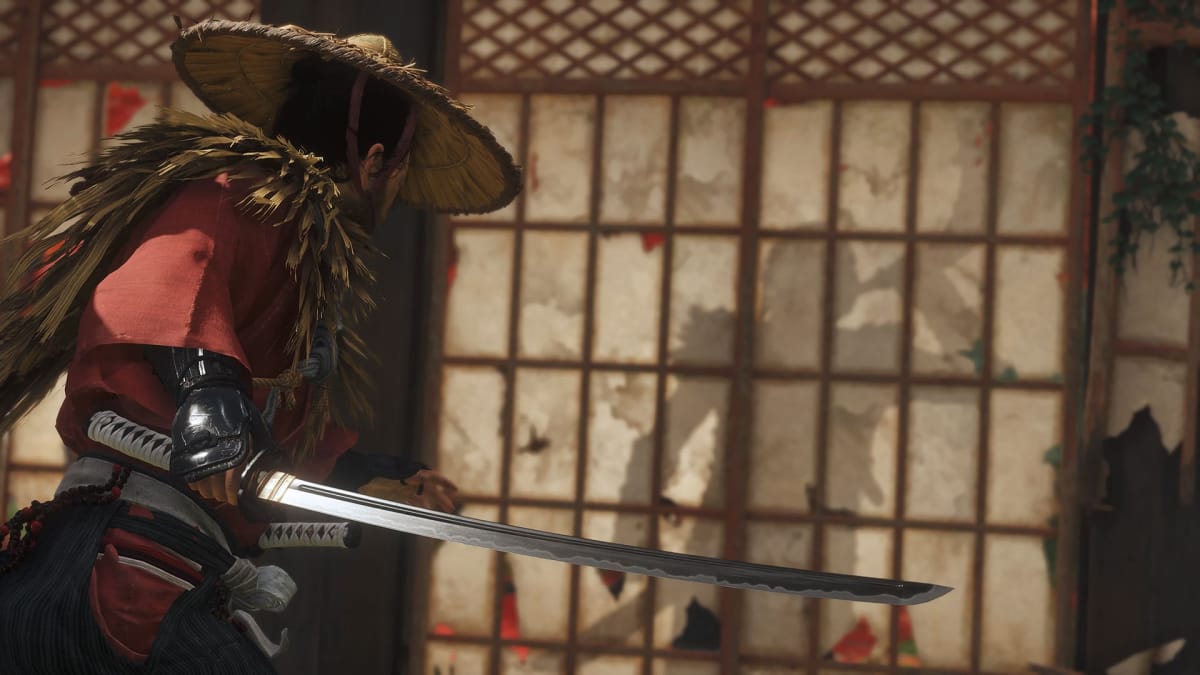
The Way of the Ghost or the Way of the Samurai?
“The Way of the Ghost” is the title track of Ghost of Tsushima, and it’s the one you might recognize the most. It starts very quietly, almost somberly. In a way, it represents Jin’s lament over what it means to be “the Ghost.” He doesn’t want to stab people in the back. He wasn’t raised that way, and he wouldn’t want to disappoint his foster father or the bushido code.
But then the song crescendos at 1:18, as if capturing that moment after the blade plunges into a Mongol’s back. It’s when Jin feels a triumphant regret: he did what he had to do to protect his people, at the cost of his own honor. This leads into the most recognizable melody in the game, a little motif that sounds so sad yet resolute, as if Jin understands that he must bear this weight of shame to survive.
However, on the opposite end of the spectrum, if you put on “The Way of the Samurai,” you might instantly recognize it too. You might not be able to place when and where you’ve heard it, but you can pretty easily imagine the sound of a Mongol launching an arrow at you.
This song often plays during open combat, which is when you’re going to employ more “samurai” ways of fighting. You look your opponents in the eyes as you slice them down—again, with honor. This track is in stark contrast to “The Way of the Ghost,” with its pompous swagger and boisterous attitude. “The Way of the Samurai” gets the adrenaline pumping, because you’re cutting through some dudes like a one-man army.
In a way, both songs capture both sides of Jin Sakai: his honor dictates he follows “The Way of the Samurai,” but his duty needs him to follow “The Way of the Ghost.” That’s why “The Way of the Samurai” sounds so straightforwardly victorious—you know that’s how Jin would rather be. On the flip side, “The Way of the Ghost” has a tinge of regret mixed into its triumphant moments, because despite getting results, it comes at a cost.
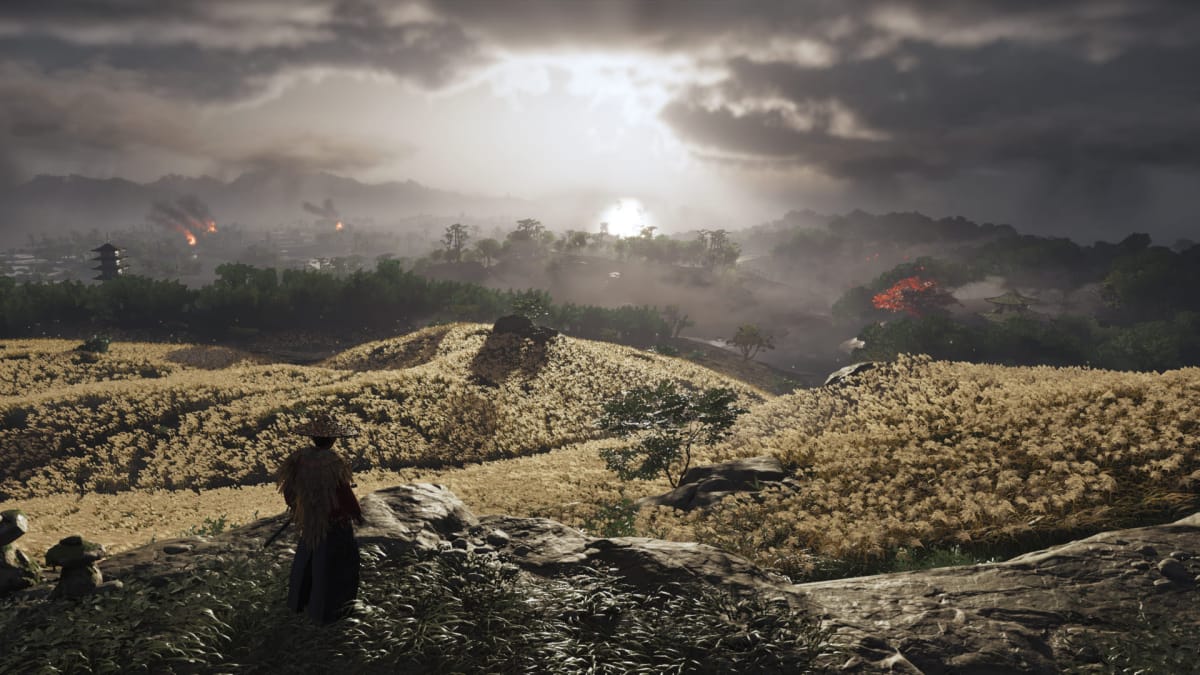
Jin Sakai and Lord Shimura
Those aren’t the only songs tied to Jin Sakai. He’s our protagonist, after all—it’d make sense to give him most of the limelight. His theme, simply called “Jin Sakai,” plays at one of the coolest parts of Ghost of Tsushima: The title drop.
After getting your bearings and playing the prologue, you’ll have a decent grasp of the conflicting action. Mongols have invaded Jin’s home, and with the help of a sneaky thief, he, as the last samurai, must save his foster father and reclaim his home. Jin gets on his horse, rides through some trees, and emerges in a field of white pampas grass. "Ghost of Tsushima" appears on the screen, and the game really begins.
This moment is where “Jin Sakai” opens up, directly paralleling the moment when the game opens up and lets you roam around its world. The melody plays the first few notes of the main motif in “The Way of the Ghost,” which makes sense, considering the way Jin grows throughout the story. However, it doesn’t commit to the full motif, because Jin can’t fully abandon his samurai ways. Perhaps the best part of this song, though, is the thunderous, powerful war drum that plays, urging you to march on and save Lord Shimura.
Of course, Lord Shimura himself has a theme song too. Named after him, the track blossoms into this moment where the violin and flute play against each other. The strings play a tenacious riff that doesn’t let up, mirroring Shimura’s strict adherence to his honor. Meanwhile, the regal flute captures his sense of royalty. After all, he’s the lord of the land.
Having theme songs dedicated to core characters isn’t anything new. Film has done it for decades, as well as games. Tying memorable melodies to important characters gives the audience a cue about them, and it’s a dynamic way to symbolize a character beyond showing them in the scene. Best of all, these themes give you a new way to illustrate how character motivations can clash, like “Sacrifice of Tradition” does.
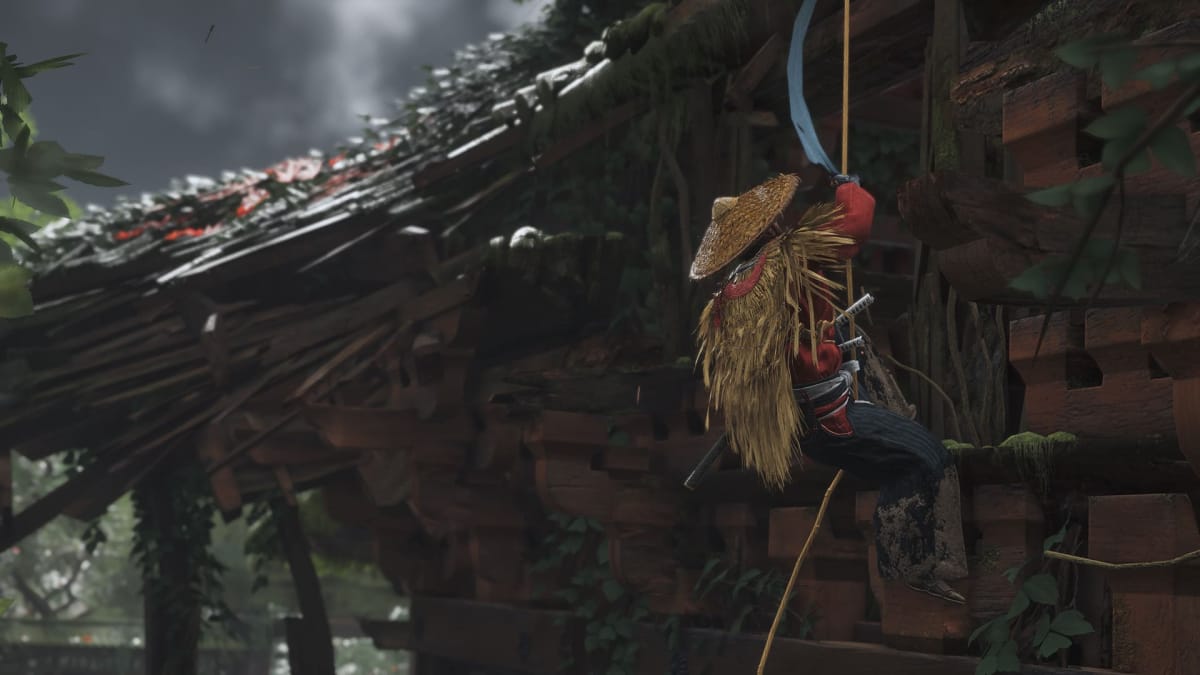
The Sacrifice of Tradition
Now, all of these songs—”The Way of the Ghost,” “The Way of the Samurai,” “Jin Sakai,” and “Lord Shimura”—really come into play at the grand finale of Ghost of Tsushima. In the final fight, Jin duels Lord Shimura to the death. It’s a heart-wrenching moment between (foster) father and son, between two warriors with different meanings of honor. They both love each other, but Shimura’s sense of honor dictates that Jin can’t live on, despite saving Tsushima. Once again, the old tradition of holding honor above all else rears its ugly head, ready to tear a family apart.
Jin feels more free and sure of himself by employing the way of the ghost, but Shimura stubbornly, defiantly adheres to tradition.
During this fight, “Sacrifice of Tradition” plays, a beautiful track that captures this momentous clash between Jin and Shimura. It starts off similarly to “The Way of the Ghost,” with the somber feeling. This time, however, it’s soon joined by a more full orchestra, along with the thunderous war drums from “Jin Sakai.” It’s a more resolute version of this motif, one that has become at peace with itself as it clashes with an external force—Lord Shimura. In a way, you could see this rendition as the “final” version of "The Way of the Ghost, the one that embodies Jin at the end of his character arc.
However, that theme soon gives way to the “Lord Shimura” theme. And here, this regal, tenacious theme sounds more stubborn than ever before. It’s boisterous, with its staccato use of the lower brass and percussion adding to the tension. Not only does this moment make “Sacrifice of Tradition” a great song for a duel, but it perfectly represents the duality of these two men. Jin feels more free and sure of himself by employing the way of the ghost, but Shimura stubbornly, defiantly adheres to tradition.
In this song, you’ll notice that specific motifs from “The Way of the Samurai” are particularly absent. At this point, Jin’s metamorphosis into the Ghost is complete, and he isn’t bound by the bushido code. “Sacrifice of Tradition” musically underscores this change, while it plays underneath the iconic moment where he must confront the consequences of sacrificing his tradition.
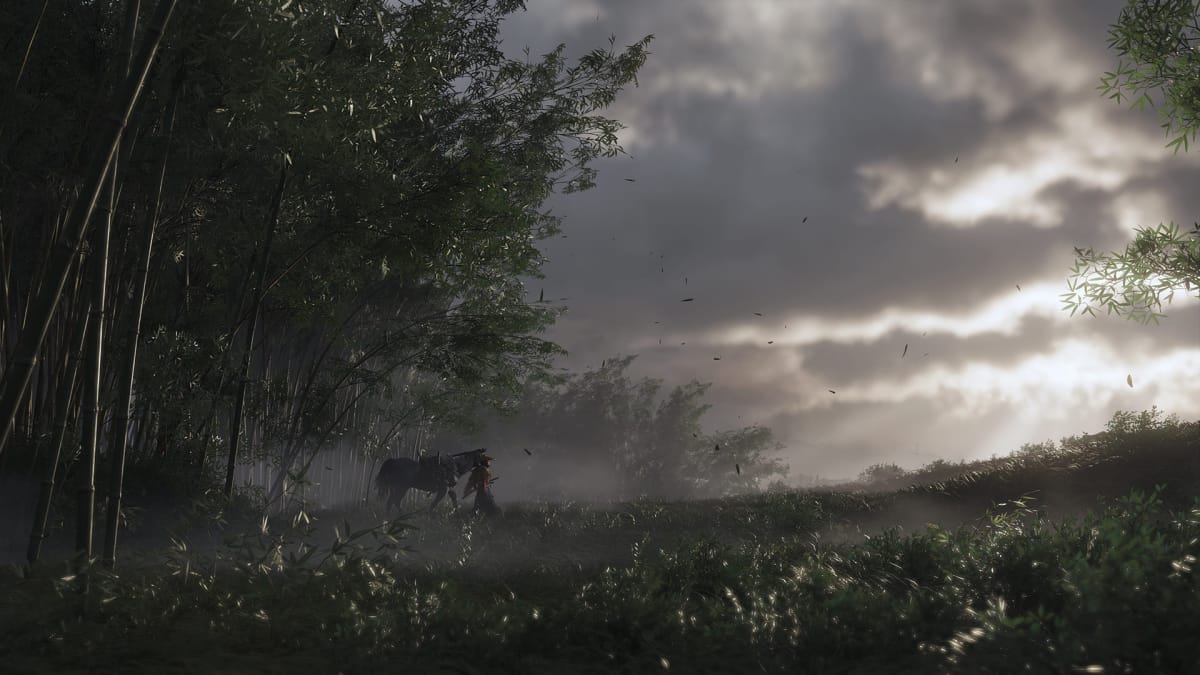
Storytelling Through Music
Sucker Punch has created a world dripping with atmosphere in Ghost of Tsushima, and its soundtrack plays a big part. Whether you’re roaming the beautiful landscape or slicing down bandits, the music accompanying those moments always fits perfectly. Furthermore, these songs weave a tale about the people in the story, adding another dimension during the moments where motivations clash. These tracks not only elevate the gameplay with the feeling of samurai cinema, but it subtly yet beautifully fleshes out meaningful moments in the narrative.
This feature is part of our limited-run series on some of the best soundtracks of 2020. Tune in next week for another installment!
Have a tip, or want to point out something we missed? Leave a Comment or e-mail us at tips@techraptor.net
